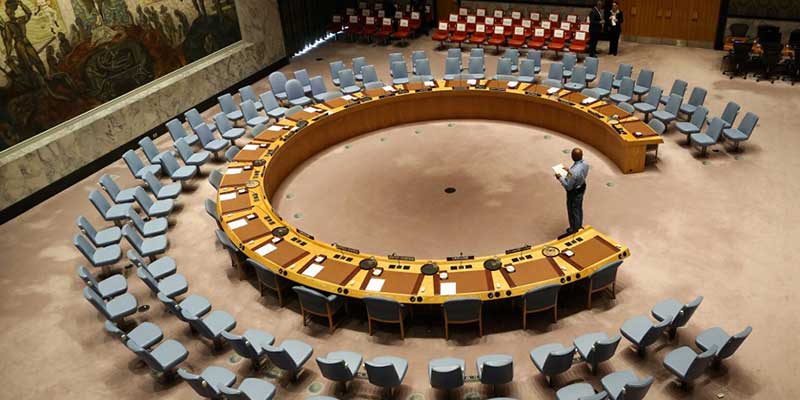- India
- Aug 02
India takes over UNSC presidency for August
• India took over the presidency of the UN Security Council on August 1 and is set to host signature events in three major areas of maritime security, peacekeeping and counter-terrorism during the month.
• The first working day of India’s presidency will be on August 2 when Permanent Representative to the UN T.S. Tirumurti will hold a hybrid press briefing in the UN headquarters on the Council’s programme of work for the month.
• Tirumurti will also provide a briefing for Member States of the United Nations which are non-members of the Council on its work for the month.
• India’s two-year tenure as a non-permanent member of the Security Council began on January 1, 2021.
• This is the eighth term of India at the UNSC. Previously, India was elected for 1950-1951, 1967-1968, 1972-1973, 1977-1978, 1984-1985, 1991-1992 and most recently in 2011-2012 when Hardeep Singh Puri, now India’s Minister for Housing & Urban Affairs, was India’s Permanent Representative.
• The presidency of the Council is held by each of the members in turn for one month, following the English alphabetical order of the Member States names.
• The August presidency will be India’s first presidency during its 2021-22 tenure as a non-permanent member of the Security Council.
• India will again preside over the Council in December next year, the last month of its two-year tenure.
• During its presidency, India will be organising high-level signature events in three major areas — maritime security, peacekeeping and counter-terrorism.
UN Security Council
• The UN Security Council has primary responsibility for the maintenance of international peace and security.
• Under the Charter of the United Nations, all Member States are obligated to comply with Council decisions.
• The Security Council takes the lead in determining the existence of a threat to the peace or act of aggression.
• It calls upon the parties to a dispute to settle it by peaceful means and recommends methods of adjustment or terms of settlement.
• In some cases, the Security Council can resort to imposing sanctions or even authorise the use of force to maintain or restore international peace and security.
• The Council is composed of 15 members.
• Five permanent members are: China, France, Russian Federation, the United Kingdom, and the United States.
• Ten non-permanent members are elected for two-year terms by the General Assembly.
The 10 non-permanent seats are distributed on a regional basis as follows:
• Five for African and Asian States.
• One for Eastern European States.
• Two for the Latin American and Caribbean States.
• Two for Western European and other States.
• Each year the General Assembly elects five non-permanent members for a two-year term.
• To be elected to the Council, candidate countries need a two-third majority of ballots of Member States that are present and voting in the Assembly.
The ten non-permanent members elected for two-year terms (with end of term year) :
• Estonia (2021)
• India (2022)
• Ireland (2022)
• Kenya (2022)
• Mexico (2022)
• Niger (2021)
• Norway (2022)
• Saint Vincent and the Grenadines (2021)
• Tunisia (2021)
• Vietnam (2021).
Manorama Yearbook app is now available on Google Play Store and iOS App Store



